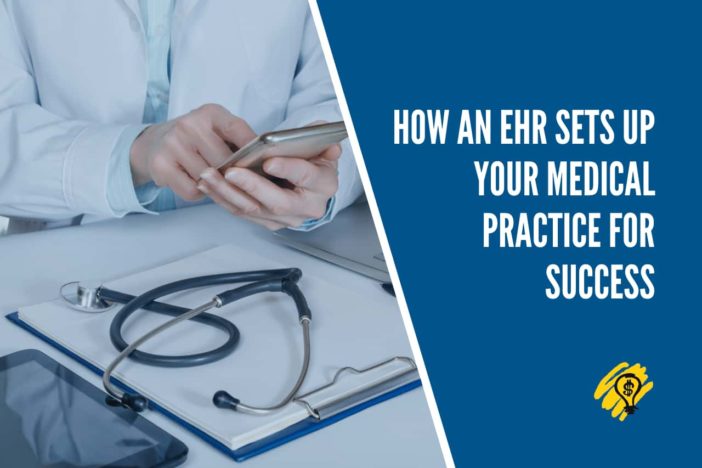Data is the mainstay of medical treatment as a hospital, clinic, or practice requires it to deliver optimal patient care.
After all, you cannot expect to treat a patient without understanding their medical history and current condition. But managing loads of data from multiple patients is easier said than done, and the complexity increases with the size of the practice.
Most providers have shifted from paper-based to digital systems to streamline the process with electronic health records. In fact, the adoption of an EHR system is the best thing a hospital and clinic can do. It enables you to input basic patient information and leverage it for managing care at all levels.
Let us dig deep into how the system sets up your medical practice for success.
A comprehensive view of every patient
As your practice grows, the number of patients may swell from hundreds to thousands. You cannot expect healthcare providers to memorize every person’s details. An EHR provides dynamic patient-centered records that offer a comprehensive picture of the care continuum over every individual’s lifetime. It facilitates faster and better diagnosis and treatment, regardless of the practice size.
Enhanced care coordination
With digital health records, clinicians are in a better place to track and coordinate patient care across facilities in large hospitals. Consider it a one-stop care system that covers the entire service, from office visits to testing, surgery, and hospitalization. The best part is the patient convenience it provides because all the services can be handled in a single visit. Most importantly, clinicians across specialties can collaborate on patient outcomes to provide better care.
Streamlined workflows
Another benefit of an EHR comes in the form of streamlined workflows, as it cuts down on paperwork and increases productivity and efficiency. You can check the top features of EHR systems to understand how they simplify practice workflows in several ways. Patients and staff need not fill out endless forms, so clinicians get more time to see patients. Further, the system facilitates the flow of referrals and prescriptions and cuts the waiting times for appointments. It also sends automated reminders and alerts regarding annual checkups to patients. Billing and insurance claims get better with integrated patient tracking.
Sharing information
An EHR system facilitates information sharing across specialties, disciplines, hospitals, pharmacies, and emergency response teams. With on-demand access to critical information, providers can give timely care and save lives. The availability of information on the fly is of great value in critical situations when timely decision-making is the mainstay of treatment.
Personalization of care
Data is the most powerful asset a healthcare organization can have as it facilitates the personalization of care to patients. Providers know patients better from the outset, making it possible to take a preventive approach to health issues. For example, knowing the family history enables them to pinpoint genetic risk factors and educate patients to follow a healthy lifestyle. Moreover, big data analytics may even alert providers to foresee broader health trends like potential outbreaks.
Beyond improving patient care, electronic health record-keeping can significantly cut administrative costs and reduce errors in your medical practice. These factors translate into success and growth in the long run.



